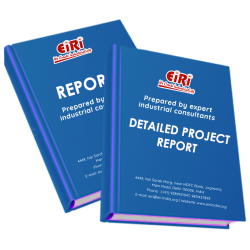How To Start Alcohol & Beverages Industry
The style and methods to their madness might be different, but citizens of every country have drinks in common. Not just the alcoholic ones, but the virgin drinks are also very popular among all age groups. The masses who prefer a little liquid courage every now and then can be divided into beer drinkers, wine lovers, hard liquor patrons, liqueurs and others. When it comes to India, the trade of alcohol has been growing at a very fast pace during the last decade. As the demographics are changing, thanks to the country now being filled with mostly youths who prefer a certain lifestyle, alcohol beverages have become much more popular. Also, the non-alcoholic drinks are enjoying their own share of the market. These can be divided into carbonated, non-carbonated and hot drinks. Be it juices, carbonated beverages, the ever glorious tea and coffee or bottled water, the number of customers is increasing. The alcohol sector of India is undergoing some very serious times, witnessing a steady upward curve.
The beer segment has been a dominating force for at least the last decade. Kingfisher and Forster’s are a hot favorite. But other brands such as Carling black label, Haywards and premium lager are also picking up some major heat. Wine has also gained a lot of popularity in India. Hence, various vineyards are jumping leaps in the revenue department. Many new companies such as Diageo and Seagrams are venturing into wine making as well. Traditionally, Indians had always preferred home made fresh fruit juices than the ones sold in bottles and cartons. But, the trend is now changing.
Today, many vendors are selling fresh fruit juices in a large number of variants. As now people have disposable incomes, they are investing a lot of money in buying instant juices. Thanks to the humongous sea of change, the Indian non-alcoholic drinks industry has also had to make a lot of major amendments. The field is more competitive than ever. Various companies such as Tropicana, frooti, slice, onius and other such names are leading the juice industry. Interestingly, all these companies produce juice not from flavors, but from real fruit pulp. The branded fruit juice segment is seeing a growth rate like never before. Even bottled water is seeing a lot of sales. People when on the move, would much rather prefer a bottle of Kinley or bisleri than tap water. This sector is seeing a lot of heat these days.
For everyone wanting to set up a business in the alcoholic or non-alcoholic beverage industry, India can be your gold mine. This sector is on fire at the moment, with a huge customer base and an even bigger potential of sales. There is a lot of hope that, bending to the demand, the taxation rules and other restrictions on the sale of such drinks will be liberalized in the coming time. The future for budding entrepreneurs in this area is very promising and filled with opportunities. A solid capital base and some tactful thinking will do the trick.
Global Alcoholic Beverages Market
Global Alcoholic Beverages Market was valued at $1,344 billion in 2015, and is expected to reach $1,594 billion by 2022, registering a CAGR of 2.1% from 2016 to 2022. For thousands of years, most cultures across the globe have traditionally consumed some form of alcoholic beverage or other. However, local specialty alcoholic beverages still account for the majority of all those that exist. Only a small number have evolved into commodities that are produced commercially on a large scale. On a global level, beer from barley, wine from grapes, and other distilled beverages are sold as commodities. The pricing of these beverages are largely determined by the costs of production and the duties levied on those costs. The effects of prices as measured with price elasticities differ both, across countries and different time periods.
The global alcoholic beverages market is driven by the increase in global young-adult demographic, coupled with high disposable income and consumer demand for premium/super premium products. However, high cost of premium/super premium products, and escalation of non-alcoholic beverages market, owing to health concerns, is expected to restrict the market growth in future. Mergers are expected to remain as the key strategy, as players seek to widen their brand portfolios and expand their market reach.

